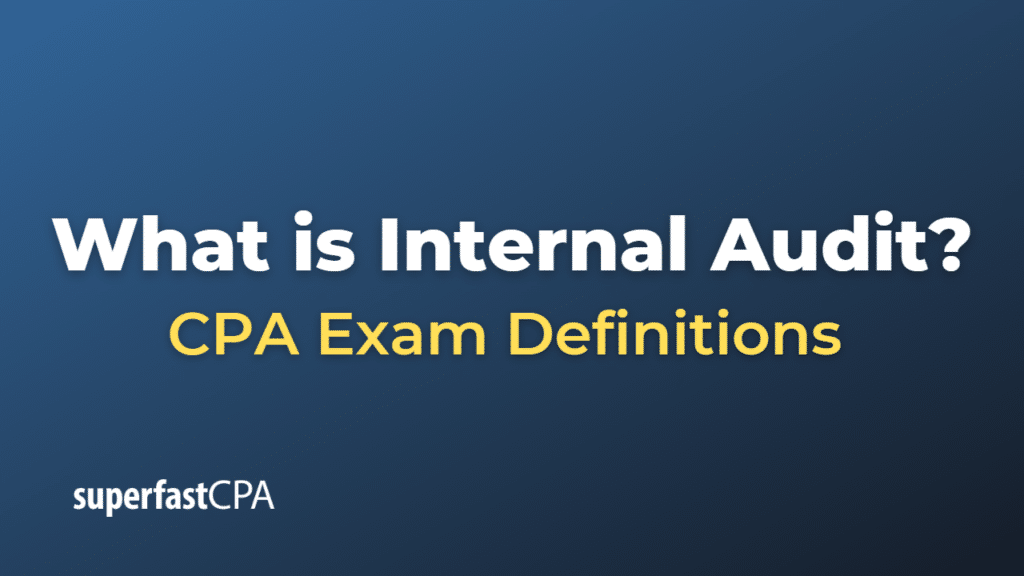Internal Audit
An internal audit is a function within an organization that provides independent, objective assurance and consulting services designed to add value and improve an organization’s operations. It helps an organization accomplish its objectives by bringing a systematic, disciplined approach to evaluate and improve the effectiveness of risk management, control, and governance processes.
Internal audits are conducted by a company’s own employees or by an external party hired by the company. They are primarily focused on providing management with insights into the company’s internal controls, operational efficiency, and compliance with laws, regulations, and company policies.
The scope of internal auditing within an organization is broad and may involve topics such as the efficacy of operations, the reliability of financial reporting, deterring and detecting fraud, safeguarding assets, and compliance with laws and regulations.
Here are some examples of what internal audit functions might do:
- Evaluate the reliability and integrity of financial and operational information.
- Review the systems established to ensure compliance with policies, plans, procedures, laws, and regulations.
- Review the means of safeguarding assets and, as appropriate, verify the existence of such assets.
- Appraise the economy and efficiency with which resources are employed.
- Review operations or programs to ascertain whether results are consistent with established objectives and goals.
Internal auditing is a cornerstone of good governance. It provides the board, the audit committee, and management with an analysis, assessments, and recommendations concerning the activities reviewed.
Example of Internal Audit
Let’s consider a hypothetical company “ABC Manufacturing Inc.” and walk through an example of an internal audit process.
ABC Manufacturing Inc. produces industrial equipment and is subject to various industry regulations. To ensure that operations are running effectively and in compliance with these regulations, ABC has an internal audit team.
One year, the audit team decides to focus on the company’s procurement process. They have noticed that the company’s cost of goods sold has been increasing faster than industry averages and want to ensure that procurement is being done effectively and efficiently.
The audit process might involve the following steps:
1. Planning: The internal audit team starts by planning their audit. They determine the scope of the audit (in this case, the procurement process), identify the key regulations and controls that should be in place, and develop a plan for how they will gather and analyze data.
2. Gathering Data: The audit team then collects data. This could involve interviewing procurement officers, examining purchase records and contracts, and observing the procurement process in action.
3. Analyzing Data: After collecting the data, the audit team analyzes it. They might compare ABC’s procurement practices to industry best practices, check for compliance with relevant regulations, and look for any signs of inefficiency or waste.
4. reporting: The audit team then compiles a report summarizing their findings. The report states that they found several instances where ABC was paying above-market prices for raw materials. It also notes that some procurement officers were not following the company’s procedures for obtaining competitive bids.
5. Follow-up: Based on the audit team’s report, ABC’s management decides to implement new training for procurement officers and to renegotiate contracts with some of their suppliers. The audit team will follow up in a few months to ensure that these changes have been implemented and are having the desired effect.
In this way, the internal audit process helps ABC Manufacturing Inc. improve its procurement process, potentially saving the company a significant amount of money and ensuring compliance with industry regulations.













